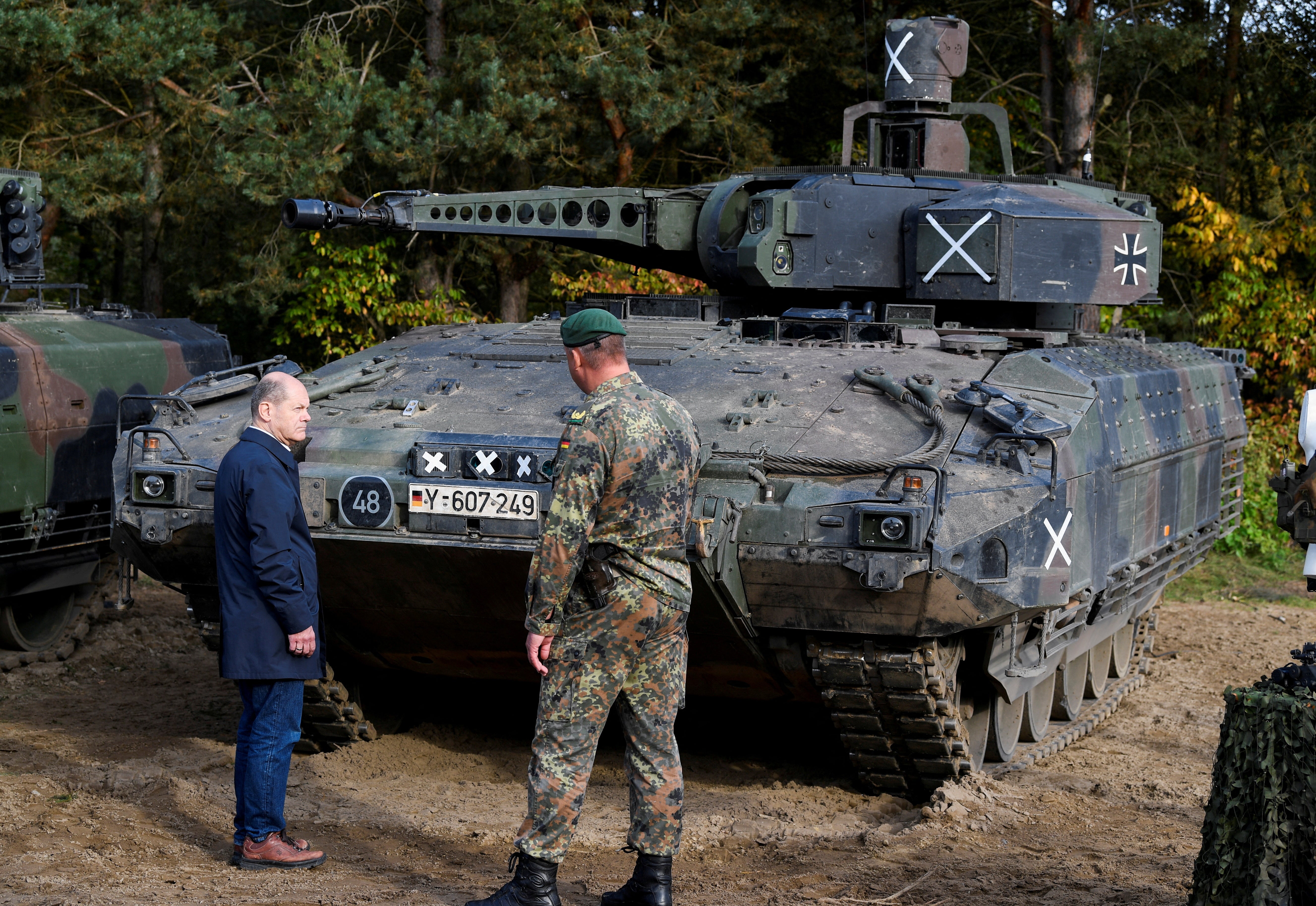‘A first step towards conscription’: Germany proposes new selective military service
Germany suspended mass conscription 13 years ago

Your support helps us to tell the story
From reproductive rights to climate change to Big Tech, The Independent is on the ground when the story is developing. Whether it's investigating the financials of Elon Musk's pro-Trump PAC or producing our latest documentary, 'The A Word', which shines a light on the American women fighting for reproductive rights, we know how important it is to parse out the facts from the messaging.
At such a critical moment in US history, we need reporters on the ground. Your donation allows us to keep sending journalists to speak to both sides of the story.
The Independent is trusted by Americans across the entire political spectrum. And unlike many other quality news outlets, we choose not to lock Americans out of our reporting and analysis with paywalls. We believe quality journalism should be available to everyone, paid for by those who can afford it.
Your support makes all the difference.Germany‘s defence minister has presented a proposal for a selective military service focused on volunteers, described as a first step towards conscription, to boost its depleted armed forces.
The proposal is part of Germany‘s shift towards a more robust foreign and defence policy, announced by Chancellor Olaf Scholz as a “Zeitenwende” or “turn of era” in the days after Russia’s invasion of Ukraine in February 2022.
Around 13 years after Germany suspended mass conscription, Defence Minister Boris Pistorus said on Wednesday all men would be obliged to fill out a questionnaire to gauge their suitability for, and interest in, military service upon turning 18. The questionnaire would be optional for women.
It would then select around 10% of those for mustering before narrowing down the selection to the most suitable and motivated to undertake the six-month basic service - with an option to lengthen this by up to 17 months.
“Those who are most, most suitable and motivated should be selected for the military service,” Pistorius told reporters.
This new model aims to increase to 15,000 the number of young people undertaking voluntary military service, a rise of 5,000, in the first year, the ministry said, growing that number year by year.
The aim was to eventually reach 200,000 more reservists, which would enable Germany to swiftly expand its troops to around 460,000 in the event of war - nearly double what it could muster today. It currently has 180,000 soldiers, which it wants to increase to 203,000, and 60,000 reservists.

And even then, Germany would have well fewer than the 500,000 troops and 800,000 reservists of the former West Germany in the Cold War.
“No matter if we are better equipping our armed forces ... the principle of deterrence only works if you have enough soldiers who could eventually defend the country,” Pistorius.
The minister has vowed to turn Germany into a “war-ready” nation, warning that war between the NATO western defence alliance and Russia could happen in five to eight years.
The model is similar to the Swedish one, introduced in 2018, which aimed to enhance the status of military service through a degree of exclusivity and some incentives. Pistorius said those who signed up for a longer service would get a bonus.
In the UK The Conservatives appear to have U-turned on Rishi Sunak’s flagship national service policy just a day after he announced it in his general election manifesto. Defence secretary Grant Shapps said the military aspect of the plan will see 18-year-olds take placements in the armed forces for just 25 days per year, despite the manifesto promising a “year-long full-time placement in the armed forces or cyber defence”.
It remains to be seen whether Germany will, like Sweden, eventually oblige the unwilling to serve too, if it cannot find enough volunteers - something there was no likelihood of for the time being, the minister said.
He added that a discussion about some form of obligatory military service was needed but now was not the right time as it would require a long political debate, especially in view of elections next year.
“I regard this as a first step,” he said.
Pistorius, who currently tops rankings of Germany‘s most popular politicians, has called the suspension of Germany‘s obligatory military service in 2011 “a mistake”.
But leading politicians from all three parties in Scholz’s coalition have expressed opposition to obligatory military service, with Scholz himself ruling out a return to mass conscription.
Pistorius is also facing opposition within the cabinet to his plans to increase defence spending.
Critics say Scholz and others in the government are not willing - or do not see the urgency needed - to make the hard and often unpopular decisions necessary to implement his “Zeitenwende” ahead of the elections.
Join our commenting forum
Join thought-provoking conversations, follow other Independent readers and see their replies
Comments